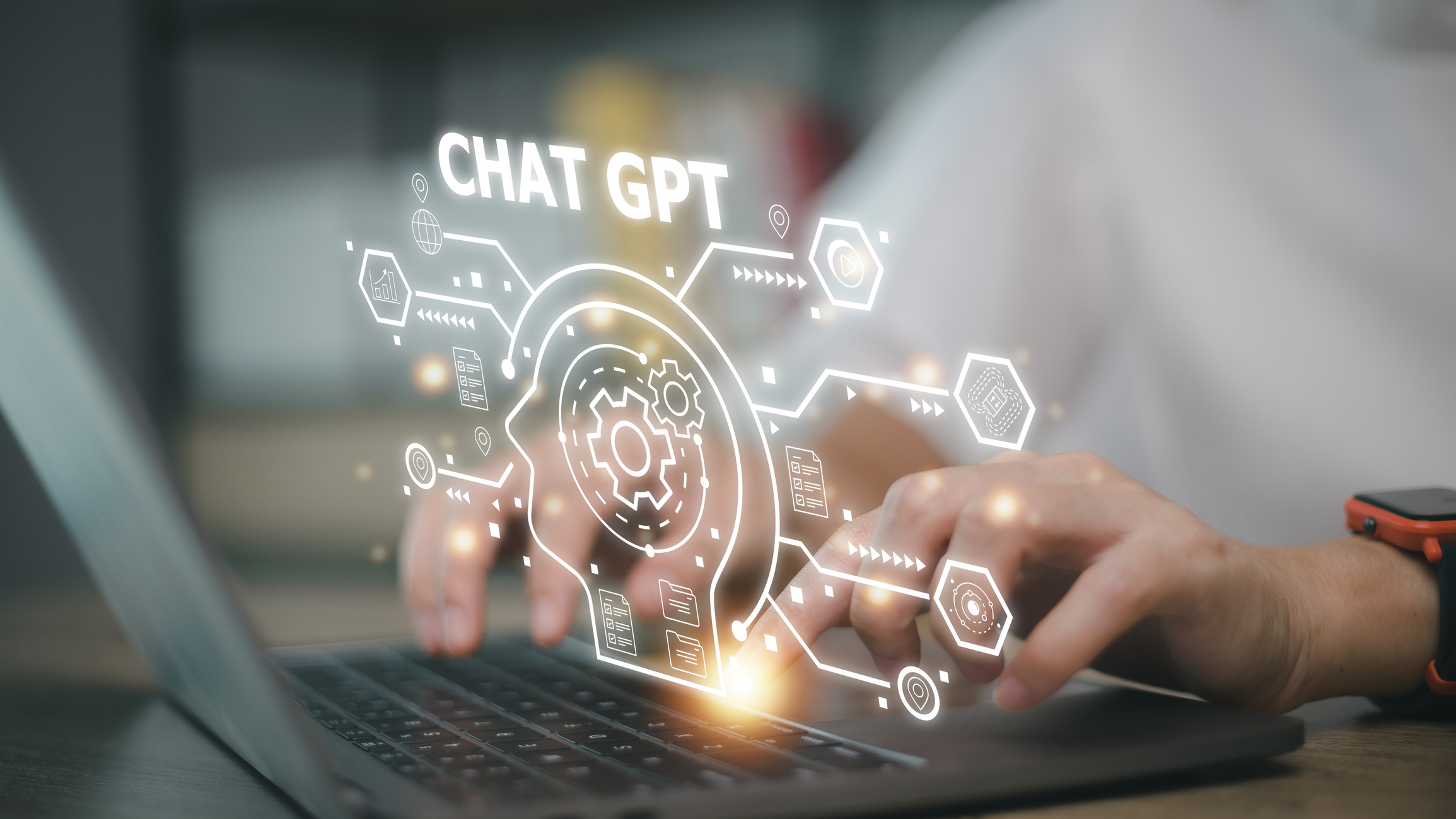
This article first appeared in Legaltech News.
On February 7, 2023, well-known venture capitalist Mike Solana tweeted his point of view about the impact of artificial intelligence on the legal industry: “There will probably be a 12 to 24 month sweet spot for lawyers smart enough to use AI, where they will be able to bill 100x the hours they currently bill, before most of that job pretty much vanishes.”
This tweet, as you might imagine, stirred up a hornet’s nest of debate on #lawtwitter, including responses like this: “Lawyer here. Pretty much guarantee that’s not going to happen. Where is the originalist AI? Or is there a living constitution AI? Not everything in the law is as simple as contesting a parking ticket…”
In short, the rise of AI has sparked a heated discussion in the legal industry, with some fearing that AI tools will render lawyers irrelevant, and others suggesting that AI will have little to no impact. As with most controversial issues, the reality probably lies somewhere in the middle.
My take? These tools will empower lawyers to provide even better services for clients. As a corporate lawyer, I’ve been giving a lot of thought to how AI will affect my practice. I make the case in this article that the most likely and beneficial impact of AI is to empower and enhance corporate lawyers’ capabilities, allowing them to serve clients more efficiently and effectively.
The AI Debate in the Legal Industry: Threat or Empowerment?
Those who view AI as a threat argue that as AI technology continues to improve, it will eventually replace lawyers or significantly reduce the demand for their services. However, this perspective overlooks the critical value of human judgment, empathy, and creativity in the practice of law.
The perspective that AI will empower and enhance lawyers’ capabilities is more optimistic and realistic. AI tools can improve efficiency and accuracy in many legal tasks, freeing up lawyers to focus on higher-value activities that require their unique human skills. This perspective acknowledges the potential of AI to transform the legal industry (Who knows what happens well off on the horizon?) while recognizing the continued importance of human expertise.
One of the most noteworthy developments in the area of AI-powered legal technology is the recent announcement by legal AI startup Harvey that it recently raised $21 million in a Series A round from venture capital powerhouse Sequoia Capital, with participation from ChatGPT founder OpenAI, among others.
According to Sequoia, “Harvey helps legal teams find leverage in time-consuming tasks like legal research, due diligence and more, allowing them to focus on client relationships and strategic work that truly moves the needle.”
There are reportedly more than 15,000 law firms on the Harvey waiting list. Here’s how Sequoia describes the potential of what it calls an “AI Super App”: “Harvey is in the business of giving people superpowers. First, lawyers. Next, professional services. Eventually, all of knowledge work.”
In the not-too-distant future, we may see AI “co-pilot” tools like Harvey integrate into all aspects of legal work.
In the meantime, to demonstrate how AI can transform—and currently is enhancing—corporate lawyers’ capabilities, let’s explore some ways these tools streamline certain common areas of corporate law.
Contract Drafting and Review
AI tools can revolutionize the contract drafting and review process by automating routine tasks and enhancing the overall quality of contracts. These tools can identify standard clauses, analyze language, generate suggestions for alternative wording, and flag clauses that deviate from the norm. By automating these tasks, AI can help corporate lawyers work more efficiently and accurately, reducing the risk of errors and allowing them to focus on more strategic aspects—such as negotiation with other humans—of the contract process.
For example, contract management software Ironclad recently launched its Ironclad AI tool, which it describes as, “the most comprehensive suite of AI contract analysis and management tools that helps you unlock and capitalize on the data in your contracts.” Ironclad AI’s capabilities include generating automatic contract redline suggestions based on the custom guidelines a company develops via AI Playbooks, identifying unapproved clauses and redlining improper language for review by a lawyer.
Legal Research for Informed Decision-Making
AI has the potential to streamline legal research, enabling corporate lawyers to stay up-to-date on legal developments and provide well-informed advice to clients. Search algorithms can quickly identify and analyze relevant case law, statutes, and regulations, helping lawyers understand the legal landscape surrounding a particular issue. By leveraging AI-powered research, corporate lawyers can make more informed decisions and better advise their clients on potential risks and rewards related to transactions and other investment decisions.
AI tools are already on the market that promise to transform the way legal research is done. Casetext’s CoCounsel, which is more of a general purpose AI co-pilot tool like Harvey, leverages AI to allow users to enter plain-language searches (such as a particular argument), or upload a document, to find supporting legal authority.
Due Diligence and Risk Assessment in M&A Transactions
In mergers and acquisitions (M&A) transactions, due diligence is a critical process that involves reviewing vast amounts of documents and information to identify potential risks and liabilities. AI-powered tools can assist in automating this process, scanning and analyzing documents quickly and accurately. By identifying relevant information and flagging potential issues, AI can help corporate lawyers focus on high-risk, high-value areas and provide more effective advice to clients during the M&A process.
Improved Collaboration and Communication with AI Tools
AI tools can facilitate collaboration among lawyers working on complex transactions by streamlining communication and document management. For example, AI-powered platforms can help organize documents, track changes, and manage version control, allowing lawyers to work more effectively as a team. By improving collaboration and communication, AI can enhance the overall efficiency and effectiveness of legal teams, leading to better results for clients.
Leveraging ChatGPT
Many of us have “played around” with OpenAI’s generative AI tool ChatGPT. There are well-founded confidentiality and data privacy concerns that make ChatGPT impractical to integrate into the day-to-day practice of law. Plus, ChatGPT wasn’t built for legal—its training cutoff date was September 2021, and it wasn’t trained on a legal-specific data set.
Nonetheless, it can be a helpful tool for generating a basic contract, conducting industry research, and drafting articles and other outputs for marketing and business development. It’s not perfect. The output often lacks a human voice—and certainly is deficient in terms of delivering nuanced analysis relative to a seasoned lawyer. But it can create a helpful first draft, allowing corporate and other lawyers to increase efficiency.
The Competitive Advantage of AI-Assisted Corporate Lawyers
Corporate lawyers who embrace AI tools will be better equipped to serve clients and gain a competitive advantage in the market. By automating routine tasks, improving accuracy, and providing valuable insights, AI can help corporate lawyers focus on higher-value activities, such as strategic advice, negotiation, and client counseling. This not only empowers lawyers but also has the potential to improve the overall quality of legal services provided to clients.
One of the big questions that’s yet to be answered is what economic impact AI will have on lawyers and law firms. Certainly AI tools will eliminate certain rote, commodity work that lawyers have traditionally charged high fees for, such as document review and basic contract drafting and review. Law firms and lawyers will likely have to rethink and re-engineer their fee structures and billing practices—not to mention staffing—to address this transformation. So law firms may take a hit, at least in the short term.
However, as with other technological developments and advancements (such as the growth of the internet), overall economic productivity may increase, growing the pie of the high-level, strategic, human-judgment-dependent work that most lawyers want to do anyway.
Conclusion
Time will tell what ultimate impact AI will have on the legal industry more broadly, and the corporate practice more specifically. But I believe the future is bright. Business clients grappling with important issues seek legal counsel because they want to leverage a corporate lawyer’s reasoning and judgment—both informed by years of experience. AI won’t replace those features, at least anytime soon.



Sorry, the comment form is closed at this time.